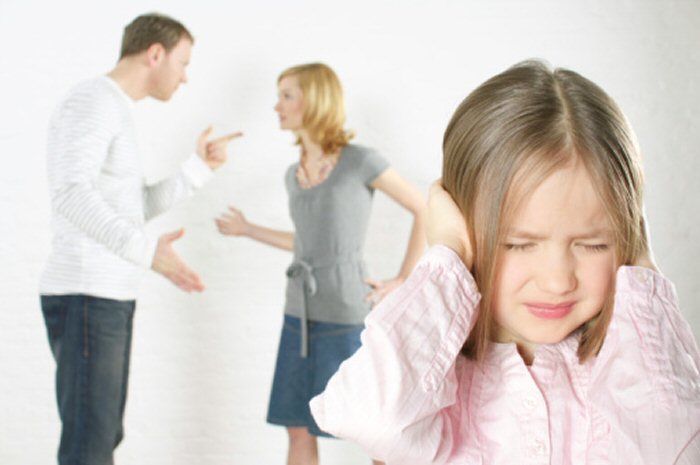The Correlation Between Parental Divorce and Child Development
Parental divorce is a major life event that can have a significant impact on children's development. There is a large body of research that has examined the effects of divorce on children, and the findings generally suggest that children of divorced parents are more likely to experience a range of socio-emotional, academic, and mental health problems than children from intact families.
Some of the most common problems that children of divorce experience include:
- Emotional problems: Children of divorce are more likely to experience anxiety, depression, and low self-esteem. They may also have difficulty coping with stress and may be more likely to engage in risky behaviors, such as substance abuse or self-harm.

- Behavioral problems: Children of divorce are more likely to exhibit conduct problems, such as aggression, delinquency, and truancy. They may also have difficulty getting along with their peers and may be more likely to be rejected by their peers.

- Academic problems: Children of divorce are more likely to have lower academic achievement and to drop out of school. They may also have difficulty paying attention in class and completing their schoolwork.
- Mental health problems: Children of divorce are more likely to develop mental health problems, such as depression, anxiety, and post-traumatic stress disorder (PTSD). They may also be more likely to attempt suicide.
:max_bytes(150000):strip_icc()/mental-health-effects-on-separated-families-5093742-final-withtext-2affe41c85854394ba1fe694b79175a0.png) The effects of divorce on children can vary depending on a number of factors, including the child's age, gender, temperament, and the nature of the divorce. For example, younger children may be more vulnerable to the negative effects of divorce than older children. Girls may be more likely to experience emotional problems after a divorce, while boys may be more likely to exhibit behavioral problems. And children whose parents have a high-conflict divorce may be more likely to experience problems than children whose parents have a more amicable divorce.
The effects of divorce on children can vary depending on a number of factors, including the child's age, gender, temperament, and the nature of the divorce. For example, younger children may be more vulnerable to the negative effects of divorce than older children. Girls may be more likely to experience emotional problems after a divorce, while boys may be more likely to exhibit behavioral problems. And children whose parents have a high-conflict divorce may be more likely to experience problems than children whose parents have a more amicable divorce.
It is important to note that not all children of divorced parents experience problems. Many children are able to adjust to their parents' divorce and go on to live happy and healthy lives. However, it is important to be aware of the potential risks associated with divorce so that parents can take steps to help their children cope with the transition.
If you are a parent who is going through a divorce, there are a number of things you can do to help your children cope:
- Be honest with your children about the divorce. Don't try to shield them from the truth. Explain to them in a way that they can understand what is happening and why.
- Reassure your children that they are loved and that the divorce is not their fault. Let them know that they are still important to you and that you will always be there for them.
- Encourage your children to express their feelings. Let them know that it is okay to feel sad, angry, or confused. Help them to find healthy ways to cope with their emotions.
- Maintain a consistent routine for your children. This will help them to feel a sense of stability and normalcy during a time of change.
- Get help from a therapist or counselor if needed. If your children are struggling to cope with the divorce, a therapist can help them to process their emotions and develop healthy coping mechanisms.
Divorce can be a difficult time for both children and parents. However, with support and guidance, children can learn to cope with the changes and go on to live happy and healthy lives.
Psychologist Perspective
- Divorce is a stressful event for children. It can lead to a range of emotional and behavioral problems, including anxiety, depression, low self-esteem, conduct problems, and academic difficulties.
- The effects of divorce can vary depending on the child's age, gender, temperament, and the nature of the divorce. Younger children may be more vulnerable to the negative effects of divorce than older children. Girls may be more likely to experience emotional problems after a divorce, while boys may be more likely to exhibit behavioral problems. And children whose parents have a high-conflict divorce may be more likely to experience problems than children whose parents have a more amicable divorce.
- Not all children of divorced parents experience problems. Many children are able to adjust to their parents' divorce and go on to live happy and healthy lives. However, it is important to be aware of the potential risks associated with divorce so that parents can take steps to help their children cope with the transition.
It is also important for parents to remember that they are role models for their children. If you are able to cope with the divorce in a healthy way, your children will be more likely to do the same.
Here are some additional tips for parents who are going through a divorce:
- Avoid putting your children in the middle of your conflict with your spouse. This can be very confusing and upsetting for children.
- Set aside time each day to spend with your children. This will help them to feel loved and supported.
- Be patient and understanding. Your children may be acting out or regressing in their behavior. This is a normal reaction to stress.
- Seek support from friends, family, or a therapist. Talking to someone who understands what you are going through can be helpful.
Divorce can be a difficult time for everyone involved, but it is important to remember that it is not the end of the world. With time, support, and guidance, children can learn to cope with the changes and go on to live happy and healthy lives.







































